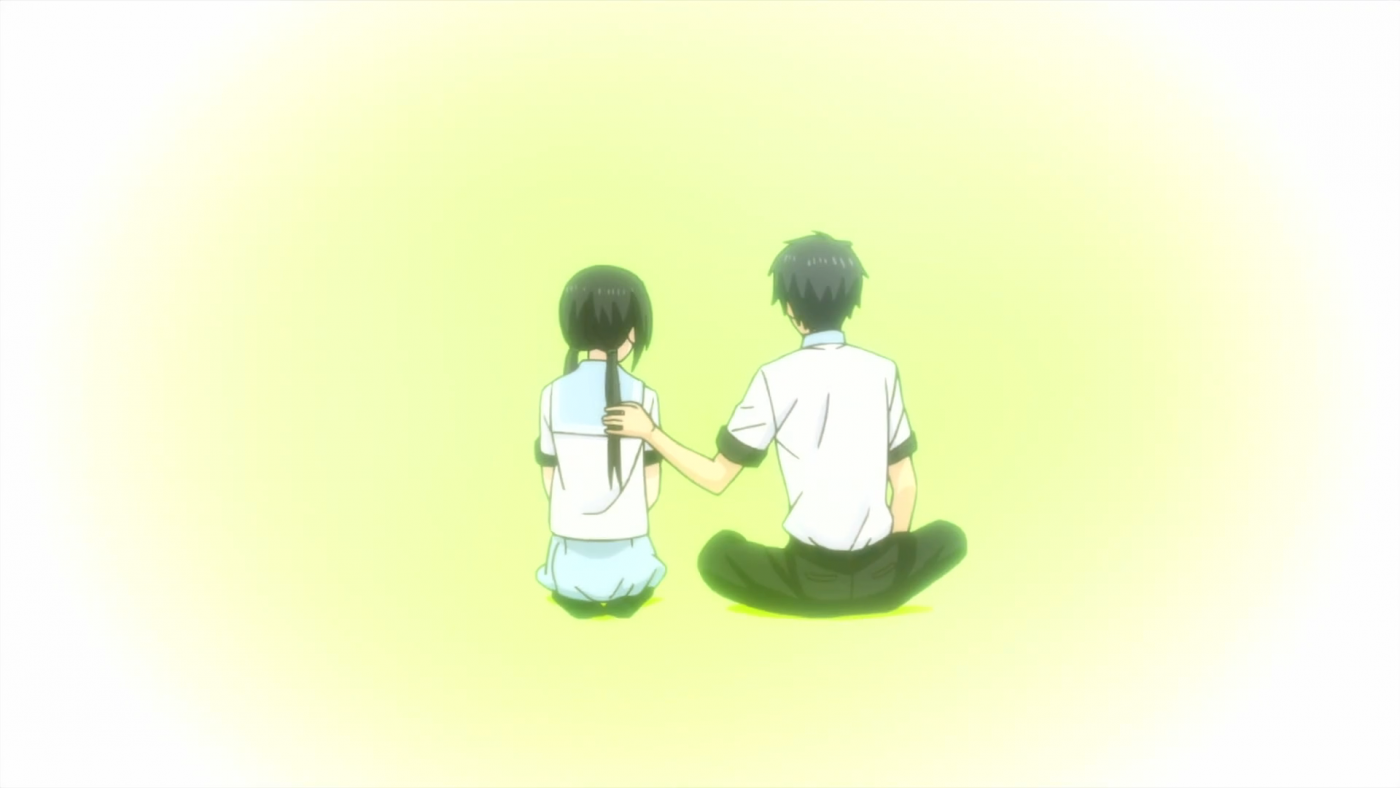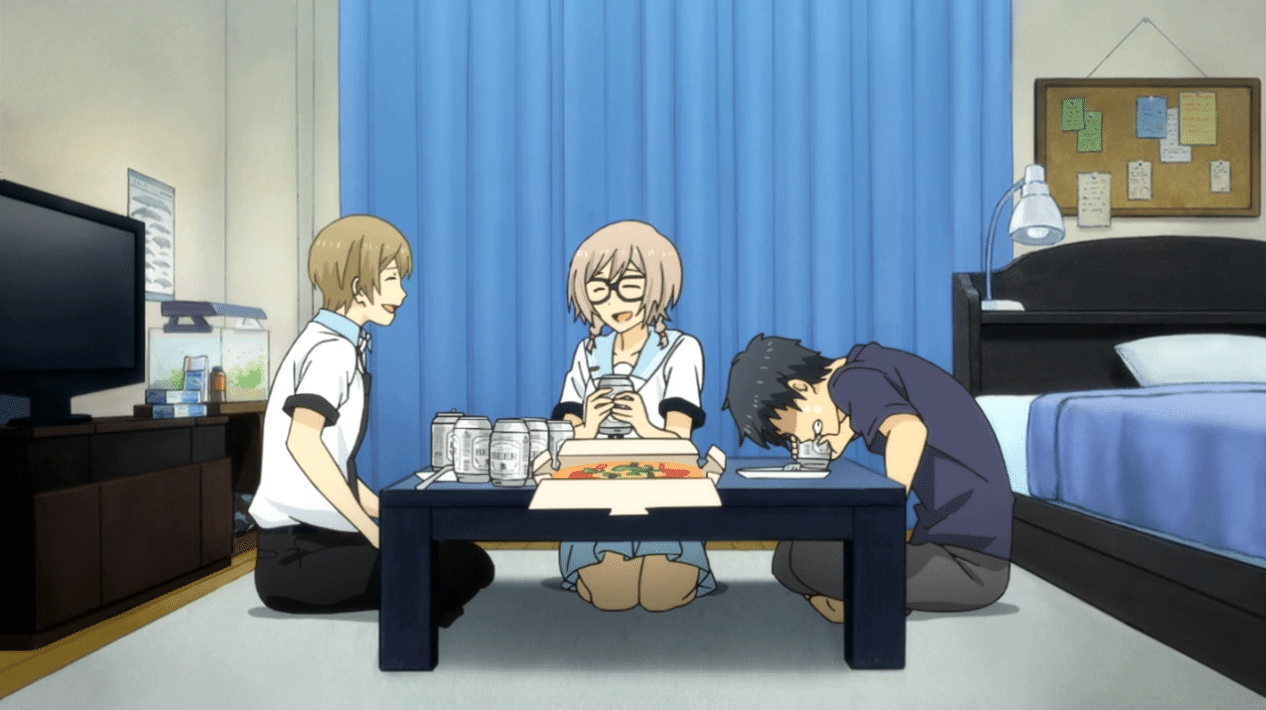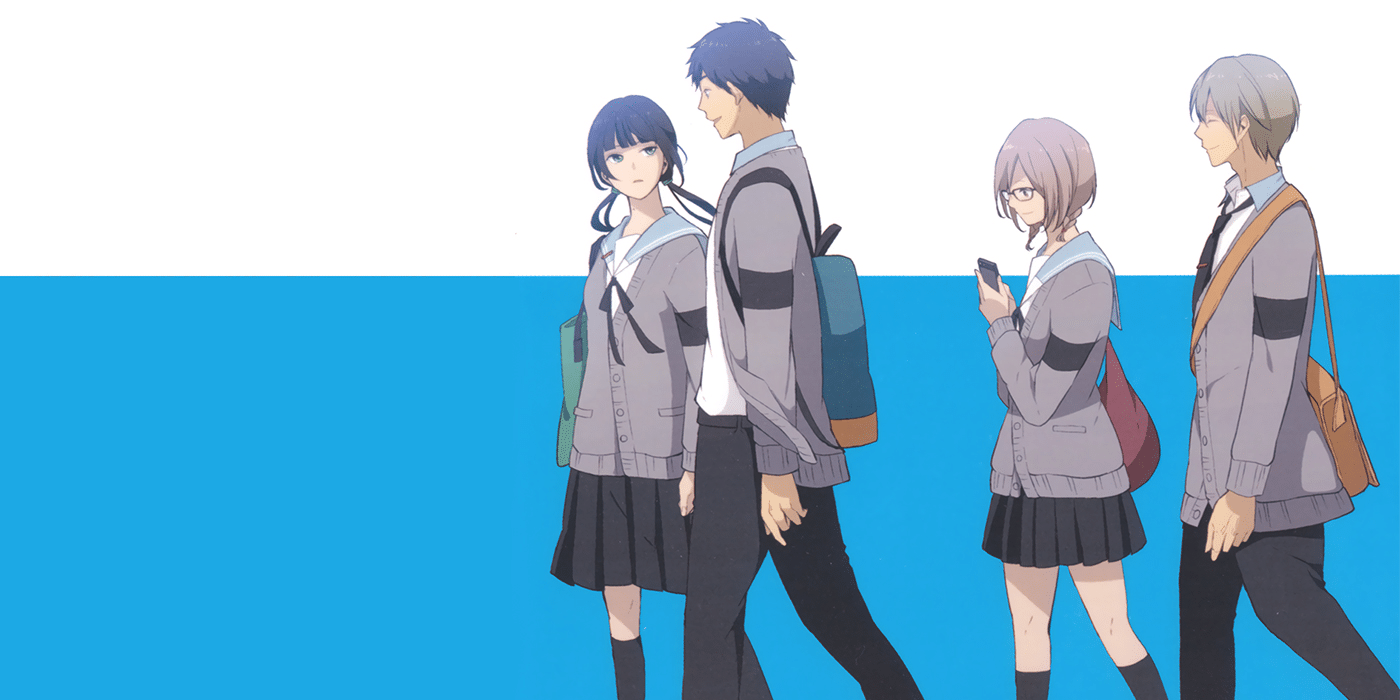ReLIFE is available on Crunchyroll and Funimation in the U.S.
This article primarily reflects the original manga, which is not currently available in English.
Anime has a problem with its leading characters.
Not all of them, mind – Spike Spiegel is wonderfully messy, and Thorfinn Karlsefni is a triumph of character growth.
But as a trend, you probably know what I mean when I say “hot-blooded anime protagonist”. One of my very first articles for Geek to Geek was about their unflattering need to upstage their co-leads, even and especially when it's decidedly Not Their Business. And look no further than One Piece, #1-selling comic on the planet, where the world seemingly runs on “grit” – a.k.a. who can shout their viewpoint the loudest and the longest.
In short, too many of anime's leading men could stand to be taken down a peg.
And ReLIFE does this constantly.
Rewind
ReLIFE opens up with its own elevator pitch: to wit, protagonist Arata is offered a magical super-scientific, Don't Sweat the Details means to age down and re-take a year of high school. Which, from the outside, sounds like the setup for a wish-fulfilment fantasy. “Competent and world-wise adult aces the teenage experience.” And goodness knows that anime loves delivering on a power fantasy.
Except, to be blunt, Arata's life has gone downhill since actual high school. Like the rest of us, he completely forgot any classes he didn't use in his now-jeopardized career. His twenties – and his coping mechanisms – are doing a number on his physical health. And, most of all, his emotional state has simply bottomed out. The man is the very definition of a quarter-life crisis.
So when he goes back, the expectation isn't that he should be the cleverest, or strongest, or even the most put-together person in the room. It's that he's the least of these things. The main character, in essence, is expected to sit down, shut up, and listen for most of the series.
The very conceit is that you stand to gain from forfeiting your ego and letting your juniors speak up.
And without getting unfairly scouring its original context, that's likely an even stronger sentiment as written.

Re-assess
That isn't to say that our leading man stays entirely clear of good old-fashioned high-school drama. There wouldn't be much of a story otherwise – not that anime is averse to going light on its plot, either.
But how the series approaches each point of conflict feels very different with a Type-B Personality in the pilot seat.
Every time two classmates have a relationship crisis, or a crisis of confidence, or an inevitable Double Crisis Special, he largely leaves it to stand. Sure, Arata can nudge things one way or the other – but nudging is ever the extent of it. A suggestion here, a stern talking-to there. But he simply can't solve other people's problems for them – and it might not even be responsible for him to try, something his Secret-Keeper regularly reminds him of.
Especially starting out, a lot has changed in the ten years between their age and his. He's almost always missing some context or a side-conversation he wasn't around for. And, even if he had all the knowledge in the world, he still isn't always working off the same values as they are. Rena from the volleyball team wants to live a very different life than he has. Class ace Chizuru just can't speak up for herself in the way that he might.
So he takes it in, offers his support and… hopes for the best, mostly.
Which – get this – is perfectly normal.
The urge to help is noble, sure. But there's a stark difference between wanting to help and just wanting to interject. Granted, the down-on-his-everything Arata would be the more cautious and reserved sort. Still, time and again, the more cautious response, being mindful of both your own and others' boundaries, holds straight and true.
It's the divide between a busybody and, well, being earnestly supportive.

Retry
And the best time to be supportive?
When somebody gets things horribly wrong.
Which – get this – is also perfectly normal.
The thing with letting people make their own decisions in their own life is: they mess up. Even if they had that decade of hindsight, they'd fall short, or have a bad knee-jerk reaction, or just have a bad roll of the dice. They'll need to hang back, lean on their support systems, and regroup.
And, ultimately, that's the core of the series.
You see it almost constantly in the form of a running gag, where Araki can't for the life of him pass his catch-up exams without friendly tutoring. And then it sneaks in more insidiously, with characters having the same conversation at least twice before they can articulate their point in a way the other understands. Even an obviously wrong invasion of privacy is treated almost more like a failure of trust than a point of conflict.
ReLIFE isn't interested in assigning blame, and it despises defeatism. Those are responses, but the response isn't the point. The point is to get back on the right track, as straightforward as that so often isn't.
Setbacks set you back, but nearly every time, you can still regain that ground. And even if you can't regain that same ground, that's the time to hang back, collect yourself, and figure out your next best step. It'll take longer for some than others. But the goal is eventual success, not immediate satisfaction. Sometimes, you need a second shot, or a third, or a fifth.
And that gets a whole lot easier with the patience and the graciousness to just hang back.


